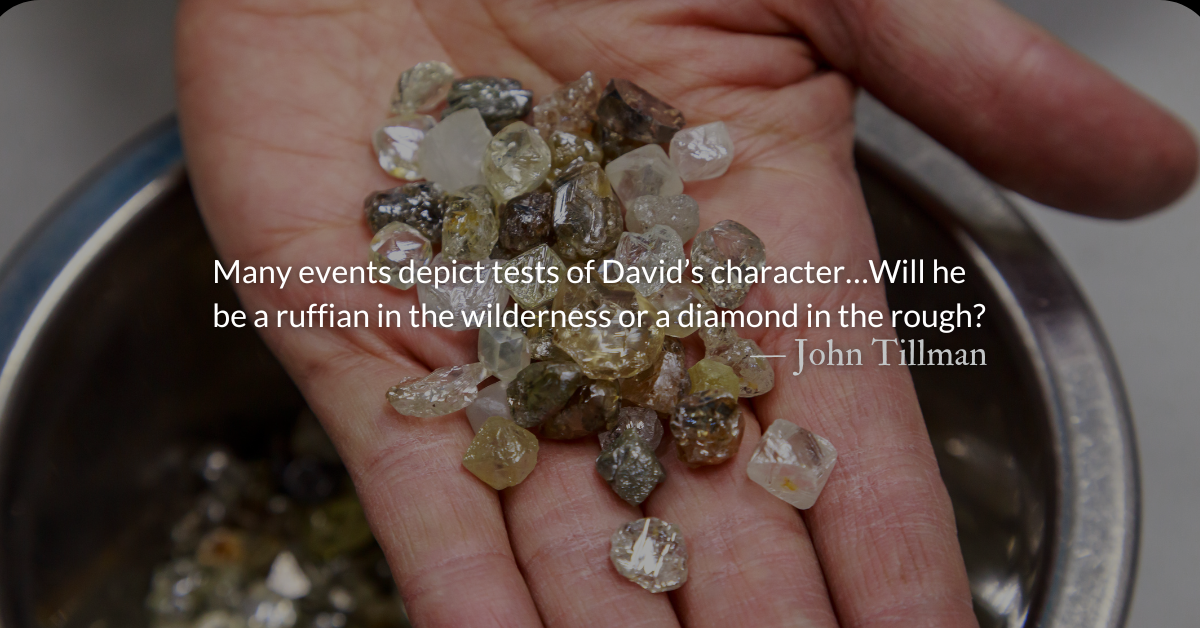Links for today’s readings:
Read: 1 Samuel 29-30 Listen: (6:33) Read: Revelation 9 Listen: (3:30)
Links for this weekend’s readings:
Read: 1 Samuel 31 Listen: (2:03) Read: Revelation 10 Listen: (1:59)
Read: 2 Samuel 1 Listen: (3:54) Read: Revelation 11 Listen: (3:24)
Scripture Focus: 1 Samuel 30.7-8, 18
7 Then David said to Abiathar the priest, the son of Ahimelek, “Bring me the ephod.” Abiathar brought it to him, 8 and David inquired of the Lord, “Shall I pursue this raiding party? Will I overtake them?” “Pursue them,” he answered. “You will certainly overtake them and succeed in the rescue.”
18 David recovered everything the Amalekites had taken, including his two wives. 19 Nothing was missing: young or old, boy or girl, plunder or anything else they had taken. David brought everything back.
Reflection: Redemption as Rescue
By John Tillman
Think about redemption for a moment… How would you explain it? Do you always explain it that way?
In recent podcasts and a video, The Bible Project explored redemption as a complex biblical theme. We use the word redemption so often that we can forget how multi-layered it is.
It’s okay to have a “go-to” redemption explanation, but sometimes we gravitate towards one explanation so exclusively that we forget the others exist. When we do this, we miss part of the wonder of God’s work of redemption just as surely as we miss part of God’s work of creation if we only describe beaches and never mountains, jungles, forests, rivers, deserts, or canyons. Therefore, it is good to remind ourselves that our “go-to” metaphors are not the only ones. Below are a few popular examples.
Redemption can be compared to a financial transaction, in which Christ takes on our debt of sin and grants us his wealth of righteousness. Redemption can be compared to a legal case in which we are judged guilty, yet Christ enters (and defeats) death’s dungeon in our place. Redemption can be compared to liberation, in which we are enslaved under an unjust government or ruler, and, like Moses, Christ sets us free. Another important metaphor for redemption is “rescue.”
1 Samuel 30 gives an excellent example of redemption as rescue. In all forms of redemption, something is transferred from the (often wrongful) possession of one party to the (rightful or preferred) possession of another. One party represents sin and death, and the other life and the family or kingdom of God. David’s family and possessions were wrongfully taken by the Amalekites and destined for slavery and death. God told David he would “succeed in the rescue.”
Redemption as rescue does not focus on the people being saved, but on God’s ability and right to take us back and on those who partner with God in this work. There is no bargaining. There is no payment. There is no sacrifice. God just snatches us out of the snare, out of death, out of sin. And no force can stop him.
The rescue metaphor is particularly useful to spur us to prayer and action. Ask God to rescue the lost. Then, put your faith into action and go get them. God alone rescues, but we respond and participate. We pray that you “succeed in the rescue!” (1 Samuel 30.18)
Divine Hours Prayer: The Cry of the Church
O God, come to my assistance! O Lord, make haste to help me!
– Divine Hours prayers from The Divine Hours: Prayers for Summer
by Phyllis Tickle
Read more: Stories of the Redeemed
We are redeemed by a God who turns situations around. God turns rivers into deserts and deserts into flowing streams.
Read more: Unobligated God
Thank God that he pays debts that he does not owe. He is a God who gives when he has no obligation.



